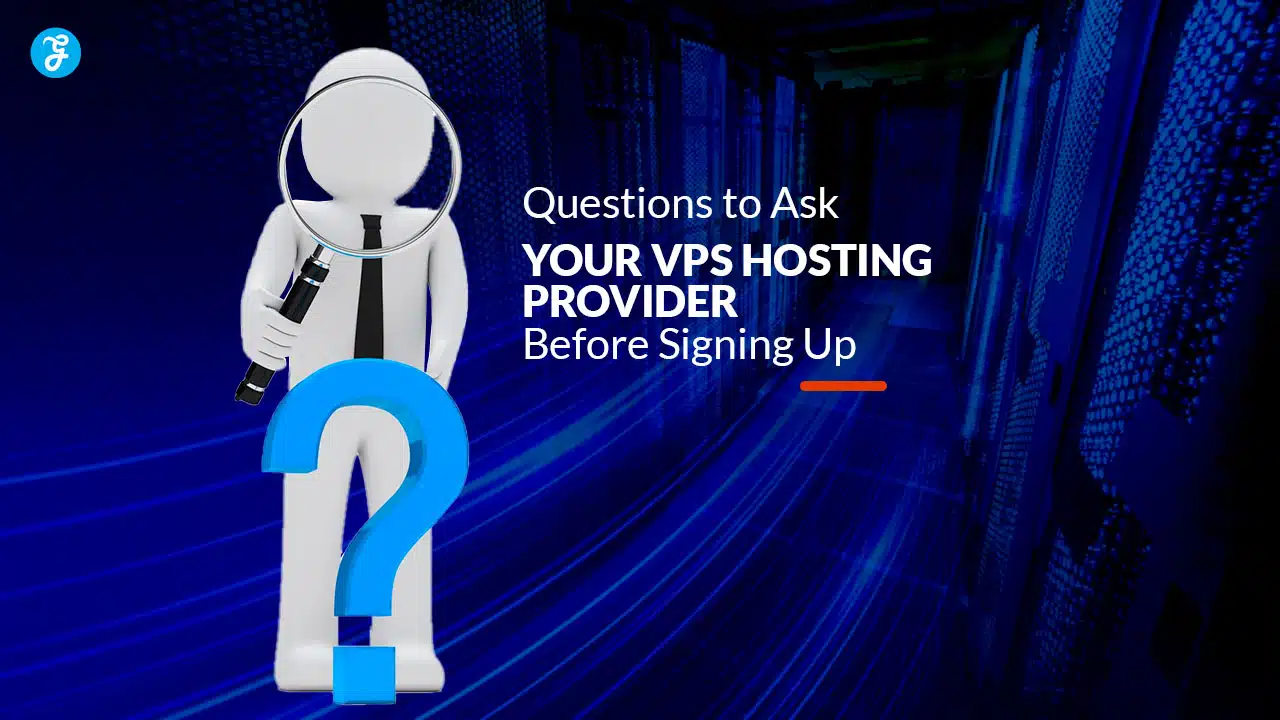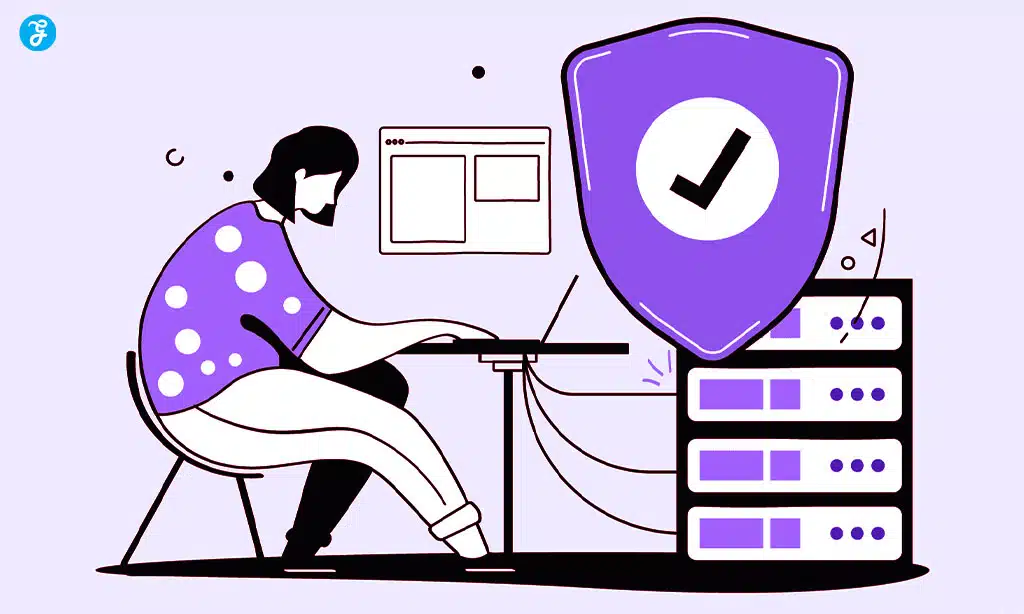Virtual Private Server (VPS) hosting has become a popular choice for businesses and individuals looking for more power, flexibility, and control over their hosting environments. But choosing the right VPS provider is critical to ensuring the success of your website or application.
Before signing up with a VPS hosting provider, it’s essential to ask the right questions to make an informed decision. In this article, we’ll guide you through 15 important questions to ask your VPS hosting provider to ensure you’re getting the best solution for your needs.
1. What Kind of VPS Do You Offer: Managed or Unmanaged?
The first question to ask your provider is whether they offer managed or unmanaged VPS.
- Managed VPS is where the hosting provider takes care of all the technical details, including server maintenance, updates, and security patches. This is ideal for users who do not have technical expertise.
- Unmanaged VPS, on the other hand, leaves most of the management responsibilities to you. You’ll have to handle installations, updates, and troubleshooting. This option is suitable for users with technical knowledge who prefer control over their environment.
Understanding which type of VPS the provider offers will help you gauge whether it aligns with your technical capabilities or needs.
2. What Level of Server Resources Will I Receive?
While VPS hosting allows users to share a server, it also allocates specific resources, such as RAM, CPU, and disk space, to each VPS. It is critical to ask the provider about guaranteed resources and scalability.
- RAM: Ensure you get enough memory to handle your applications without performance bottlenecks.
- CPU: Find out how many CPU cores your VPS is using and how this will affect performance.
- Disk Space: Check if the storage is an SSD or HDD, and if it is scalable as your website grows.
3. What Uptime Guarantees Do You Provide?
Uptime is a critical factor for any website. The hosting provider should provide a clear uptime guarantee. A good VPS provider will guarantee at least 99.9% uptime. Anything less could lead to frequent downtimes, negatively impacting your website’s accessibility and user experience.
Also, inquire about what happens if they don’t meet their uptime guarantee—do they offer service credits or any form of compensation?
4. How Is the Server Security Handled?
Security is one of the top priorities for any VPS hosting provider. Ask them about the measures they take to secure their servers.
- Firewalls: Is there a firewall in place to protect your VPS from malicious attacks?
- DDoS Protection: Does the provider offer protection against Distributed Denial of Service (DDoS) attacks?
- Backups: In case of an incident, does the provider offer regular backups, and how easily can you restore your data?
Also, ensure that the provider complies with industry security standards and regulations such as GDPR or PCI-DSS, depending on your business requirements.
5. How Scalable Is the VPS Hosting?
As your website grows, your hosting needs will evolve. Therefore, it’s crucial to inquire about the scalability of the VPS hosting plan.
- Can you easily add more RAM, CPU cores, or storage as your needs increase?
- Is the process seamless, and does it involve downtime?
- Are there any limitations on the maximum resources you can allocate?
Having a scalable solution will allow your website to grow without interruption.
6. What Is the Network Bandwidth and Traffic Limit?
Understanding how much bandwidth and traffic your VPS can handle is essential for maintaining a smooth website experience.
- Bandwidth: Refers to the amount of data that can be transferred to and from your VPS. Ensure to inquire about the monthly bandwidth allocation.
- Traffic Limits: Some VPS providers offer unlimited bandwidth, while others set a cap. If there’s a cap, ask what happens if you exceed it—will there be extra charges?
Ensure that the bandwidth provided aligns with your expected traffic levels.
7. Do You Provide Root Access to the Server?
For users who want full control, root access is crucial. Root access gives you the ability to customize and configure the server according to your requirements.
- Some providers offer root access as a standard feature, while others may restrict it or offer it only for certain plans.
- If you need full control over your server, ask whether you’ll have SSH access to manage the environment and run your scripts.
8. What Operating Systems Are Supported?
Different websites or applications might require different operating systems (OS). Ask your VPS hosting provider what OS options are available.
- Linux distributions such as Ubuntu, CentOS, and Debian are common options, as is Windows Server for those who prefer a Windows environment.
- Ask whether the provider supports custom OS installations if you have specific needs.
9. How Is the Customer Support Service?
Strong customer support is critical when dealing with server issues. Some things to ask include:
- Is 24/7 support available?
- What are the available support channels—live chat, phone, or ticket system?
- Are there any response time guarantees for critical issues?
A provider with robust support can be a lifesaver when you encounter unexpected server problems.
10. What Backup Solutions Are Provided?
Regular backups are essential to ensure that your data is safe and recoverable in case of a disaster. Ask the hosting provider about their backup services.
- Are backups done automatically, and how often are they performed?
- Can you easily restore your website from a backup, and are there any costs involved in doing so?
- For additional security, are backups stored offsite?
Understanding the backup policies can prevent data loss during critical moments.
11. What Is the Cost Structure and Are There Any Hidden Fees?
The cost of VPS hosting varies depending on the resources provided. Make sure to get a breakdown of the pricing structure and ask if there are any hidden fees.
- Ask about the upfront costs, renewal fees, and whether prices increase after the first term.
- Clarify the additional costs for features such as additional IPs, extra storage, and automated backups.
This will give you a clear idea of your total investment and help you avoid unpleasant surprises down the line.
12. Can I Upgrade or Downgrade My Plan Easily?
As your hosting needs change, you might want to upgrade or downgrade your VPS hosting plan. Ask the provider about the flexibility of their plans.
- Is it simple to switch between plans, and what are the costs associated with doing so?
- Will upgrading or downgrading result in any downtime?
This flexibility will allow you to adjust your hosting resources as your website or application evolves.
13. What is the Server Location and How Does It Affect Performance?
The location of your VPS server can significantly impact your website’s performance, particularly its loading speed.
- Ask where the server is physically located and whether they offer a choice of data centers.
- Choosing a server closer to your target audience can lead to faster load times and a better user experience.
Additionally, find out if the hosting provider uses Content Delivery Networks (CDNs) to help reduce latency and boost speed for users around the world.
14. How Long Is the Setup Process?
For some users, getting the VPS hosting set up and running quickly is crucial. Ask how long the provisioning process will take.
- Is the VPS available immediately after signing up, or is there a setup period?
- Does the provider offer a migration service to help you move from your current hosting provider?
Fast and seamless setup means you can start using your VPS without unnecessary delays.
15. What Is Your Cancellation Policy?
Finally, it’s important to understand the cancellation policy in case you decide to move to another provider or no longer need the VPS.
- Is there a money-back guarantee for new customers if you’re not satisfied with the service?
- Are there any penalties for canceling before the contract term ends?
- How easy is it to transfer your data and cancel the service?
Understanding the cancellation terms helps you avoid signing a contract that doesn’t meet your needs.
Conclusion
Choosing the right VPS hosting provider is a critical decision that will impact your website’s performance, security, and scalability. By asking these 15 questions, you can make an informed choice that ensures you get the resources, support, and flexibility you need to grow your online presence. Always remember to prioritize transparency, flexibility, and support when evaluating different hosting providers.






































